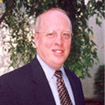Commentary on John 13:31-35
The Gospel of John could be summed up by a number of different key words.
It could be called a gospel of life, a gospel of light, of believing, of knowing, of sending and being sent, a gospel of signs, or, above all, as we will see from this passage, a gospel of glory and of love. Throughout John, the understanding of any key word eventually leads to all the key words. They draw meaning from each other, or more accurately, from their connections to the words and works of Christ. They resist definition, serving more as pointers to Christ. One knows what these words mean to the extent to which one knows this incarnate Word sent from God into the world.
Jesus tells Nicodemus, “We speak of what we know and bear witness to what we have seen” (3:11). Later he explicitly connects “understanding” with his “works”–“even though you do not believe me, believe the works, so that you may know and understand that the Father is in me and I am in the Father” (10:37-38). Life, light, believing, knowing, glory, love–the meanings of these words do not lie in the dictionary; they lie in the actions of Christ. They describe life and a way of life, and they can be known only as experienced in their incarnation.
Gospel of Glory
One cannot preach on the glory mentioned in verses 31-32 without setting it in the context of the whole of John. The meaning emerges within the narrative. The glory is inherent in the Son, something he had in God’s presence before the world was made (17:5) and that he brings with him into the world (1:14). Those who are his can see that glory, the ultimate outward sign of inward grace and truth (1:14-18). At the same time, it is inherent in him, however, it does not reach its fullness until he has completed the work his Father sent him to do (7:39; 17:4). Thus, although his glory is revealed to the disciples at Cana (2:11), promised to be shown again following the illness of Lazarus (11:4), and promised again to Martha at Lazarus’ tomb (11:40), in a real sense, only with the arrest, crucifixion, and death does the hour finally come for him to be glorified (12:23; 17:1).
As always in John, this glorification of Father and Son is not something between them alone; it does not stop with Christ. The capacity to glorify God extends to Christ’s followers and is laid upon believers as a charge–“My Father is glorified by this, that you bear much fruit and become my disciples” (15:8). Believers are empowered to do the same works that Christ did, and even greater works. Whatever works believers ask him to make possible, he will do, so that the Father will be glorified in the Son (14:12-14). The Father will not only be glorified in the Son, but also in the community of faith.
Our actions show God’s glory, too. At least, we are charged that it be so. Jesus prays, “All mine are yours and yours are mine, and I have been glorified in them” (17:10). Here, in the midst of this high ecclesiology, is no sign of Paul’s dictum that “all have sinned and fallen short of the glory of God” (Romans 3:23). Here the focus lies on promise and possibilities, looking at the fullness of God’s gifts: “The glory that you have given me I have given them, so that they may be one, as we are one … so that the world may know that you have sent me and have loved them even as you have loved me” (17:22-23). As was true for Christ is true for us. We cannot fully show the glory until we have completed the work God has sent us to do. Or, more positively, we show the glory as we complete that work.
Gospel of Love
As stated with regard to “glory,” one cannot preach on the commandment to love (verses 34-35) in isolation from the larger narrative. Only in its depiction of Christ can we see what it means to love one another as Christ has loved us.1 This is crucial, since Christ establishes love as the defining characteristic of believers (verse 35). All the works mentioned above that show God’s glory are at their core works of love, and if we complete no other work, we have done what we are called to do.
This work, however, is demanding, is no mere feeling, but stands as an enduring, abiding will to do whatever God sends us to do. Jesus states this starkly, three times. “If you love me you will keep my commandments” (14:15), “Those who love me will keep my word,” (14:23), and “If you keep my commandments, you will abide in my love” (15:10a). Love of God and obedience to God become almost synonymous.
However, this is not obedience out of a joyless sense of duty or command. This love/obedience flows out of communion with Christ. It is who we become, the more we come to know God. As imperfectly as we might incarnate love ourselves, the goal is that love constitutes the essence of who we are and what we do. God will always call on us to love. And if we love as Christ did, that love is strong, enduring, and faithful; we will love to the end (13:1). This love is not easily shaken or deterred from its primary task, which is simply to express itself in action, drawing from God’s unlimited supply. Perhaps Jesus’ promise in Matthew is better known–“wherever two or three are gathered in my name, I am there among them” (Matthew 18:20), but in John the promise is made more richly–“Those who love me will keep my word, and my Father will love them, and we will come to them and make our home with them” (14:23).
This love flows out of his abiding presence among us. When we live in his love, we can, if called upon, fulfill the highest form of love. “There is no greater love than this, to lay down one’s life for one’s friends” (15:13). These are high standards for a high calling. We might look at our friends and wonder–if the moment ever came, would we be willing to die for them?
The Reverend Joachim Alexandropoulos was an Orthodox priest on a Greek isle in World War II, now memorialized at the Holocaust Museum in Washington, DC. The Nazis came one day, demanding that he provide them, the next day, with a list naming every Jew on the island. The next day he handed them a list containing only one name, his own. He loved them to the end, indeed. We might never be tested to those utmost limits of love, but even if we are not, we are still called to fulfill whatever works of love lie before us. Who knows what those might be. In this passage, Christ’s new commandment calls on us to seek them out.
1For a brief exposition of the Greek words for love and their meanings in John, see the gospel commentary for the 3rd Sunday of Easter.


May 2, 2010